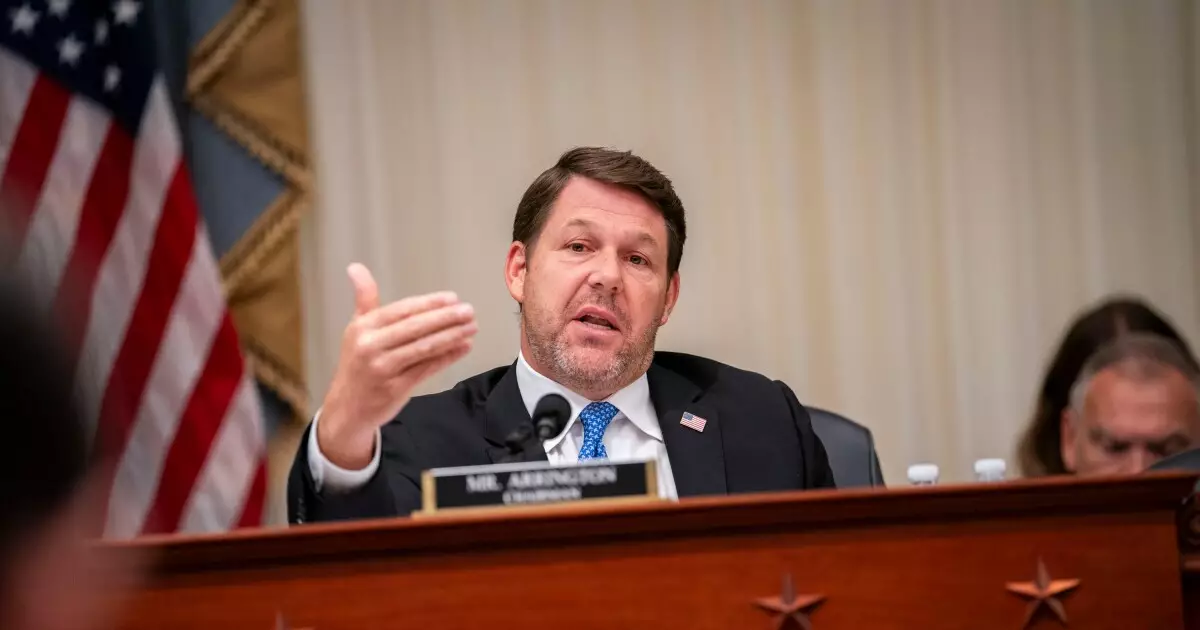The upcoming budget resolution in the U.S. House of Representatives is shaping up to be more than just a procedural formality. It stands at the intersection of fiscal responsibility and political maneuvering, as lawmakers grapple with ideological differences and strategic calculations. With the Senate having passed its version of the budget framework, the House is set to confront a myriad of challenges. The backlash from conservative lawmakers who perceive the Senate measure as insufficient underscores the entrenched divisions within the GOP. Such discord highlights a reality that is often overlooked: political agendas often take precedence over sound fiscal policy, potentially putting the economy at risk.
Reconciliation: A Double-Edged Sword
The Democrats’ use of the reconciliation process is a powerful tool, allowing legislation to advance with a simple majority in the Senate. While this can expedite the passage of critical tax reforms, it presents a paradoxical danger. The GOP plans to use this method to extend previous tax cuts and enact policies that would favor businesses, such as exempting tips from taxes. The question arises: are we creating a fiscally sound foundation, or merely a facade that serves short-term political gains?
Critics of this approach argue that relying on reconciliation means sacrificing long-term fiscal health for immediate political appeasement. If the GOP leadership only looks to appease their base without addressing the broader implications of their fiscal policies, they risk not only a flawed budget resolution but also an economy that could spiral into instability.
Tax Cuts, But at What Cost?
In theory, tax cuts can spur economic growth and enhance consumer confidence. However, this perspective can mask more profound issues. The Senate’s budget calls for a deficit increase of $2 trillion over the next decade, a number that activists on both sides should find alarming. Some estimates indicate that this figure could balloon to $5.7 trillion, a staggering amount that raises questions about how these tax cuts will be funded.
The ideological rift can be seen clearly in the contrasting minimal cuts proposed in the House versus the Senate’s vastly inflated deficits. Is it wise to prioritize tax reductions over sustainable budgeting? The answer, at least from a center-right viewpoint, leans heavily toward fiscal prudence. Tax reform should not be a mere exercise in populism; it needs to focus on genuine economic growth rather than simply a political talking point.
Municipal Bonds and the Looming Threat
One of the lesser-discussed, yet crucial, implications of this budget resolution is its potential impact on the municipal bond market. Lawmakers are reportedly contemplating restrictions on the municipal bond tax exemption to offset these tax cuts. This is a disconcerting development for municipalities that rely heavily on these bonds for public projects. If these cuts hurt local financing options, they can stifle essential services and infrastructure developments. Conservatives who often champion state autonomy and local governance should be alarmed by any proposal that threatens this funding stream.
Debt Ceiling: A Pandora’s Box?
Increasing the debt ceiling by up to $5 trillion is nothing short of a gamble with dire consequences. This move, which exceeds the House’s proposal by a trillion, pushes the envelope on fiscal responsibility at a moment when government spending is already under scrutiny. Shouldn’t the GOP champion austerity and reduced spending in the era of bloated budgets? As we hover on the precipice of a government shutdown driven by a debt ceiling debate, such increases can set a treacherous precedent for future administrations.
The Role of Leadership and Unity
As Speaker Mike Johnson and House leaders scramble to rally support, it is clear that party unity will be pivotal in passing this budget resolution. Their “Dear Colleague” letters urging passage highlight the urgency but also reflect a partisan strategy that might downplay essential safeguards. With fiscal conservatives already skeptical of the Senate’s version, how will leadership ensure that vital spending cuts are not lost in the shuffle? A unified front is needed, but it must be one that doesn’t compromise on responsible fiscal governance.
It’s this delicate balance that will define the success or failure of this budget resolution. Lawmakers need to remember that their obligation is not merely to their party and base but to the American taxpayer. As this complex fiscal dance unfolds, the stakes couldn’t be higher.

